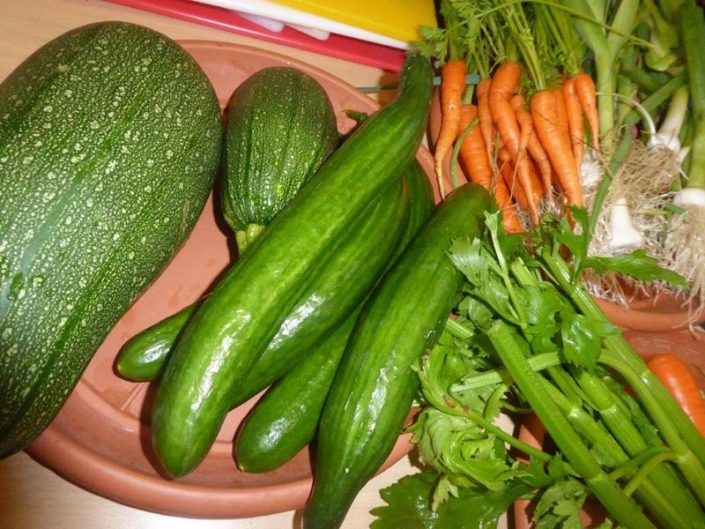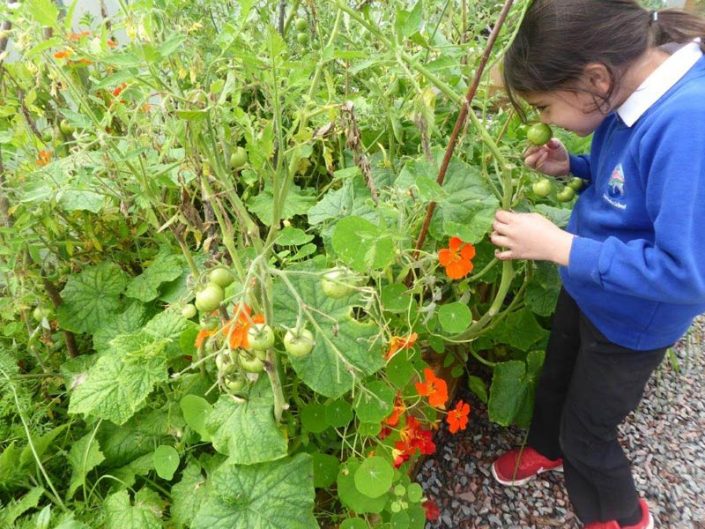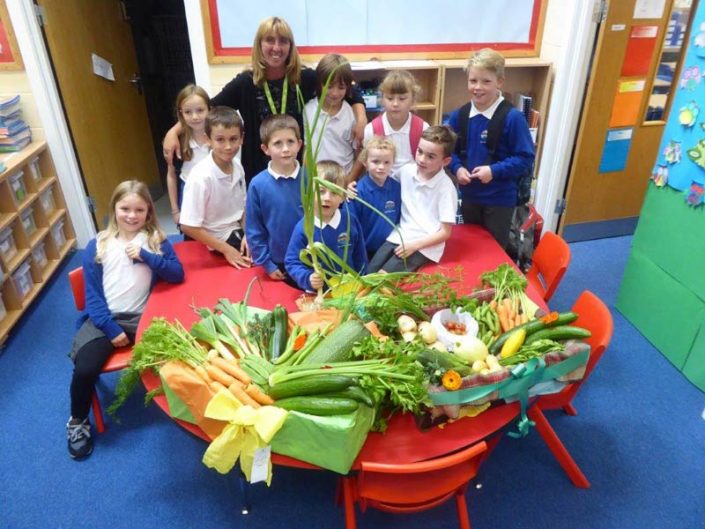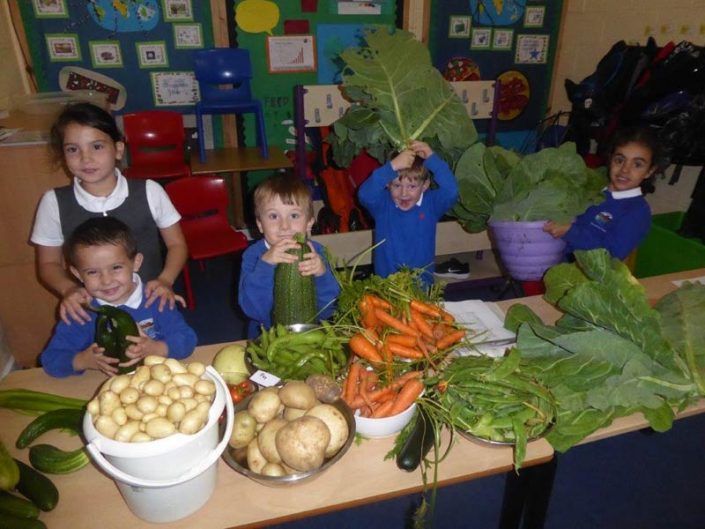Locally Grown Food
The project created further opportunities to develop skills and confidence to grow, eat and cook more local, seasonal food. Activities and workshops were organised which ranged from Fruit Tree Pruning and Composting Workshops, to Seed & Plant Swaps and Garden Trails.
We worked closely with pupils, teachers, parent volunteers and janitors at Spean Bridge Primary School and created additional growing spaces in the grounds of the school. A new polytunnel was purchased from Highland Polytunnels, raised beds were made from recycled materials and fruit trees planted in the upper field. Gardening Classes were a regular part of the Curriculum during Spring, Summer and Autumn.
Seeds were sown and sprouted, plants began to grow and pupils continued to nurture their garden space throughout the year. Rotas were in place for additional watering and composting, planting, harvesting and gathering seeds to dry. Pupils were encouraged to taste and eat what they had grown and enjoyed having a go at making soups, vegetable curries and stir fries as part of Gardening Time. Spean Primary entered their produce in the Lochaber Agricultural Show competition and won 1st prize in the Schools Category. Fantastic!
We established connections with residents of Achnacarry, Bunarkaig and Clunes (ABC) communities who manage a large Woodland Garden on behalf of Forest Enterprise and expressed an interest in working together to regenerate the land and grow more food. Workshops were organised and fruit trees and plants supplied to assist with their Community Growing.
Food Waste
We publicised our “New to Composting” food waste initiative at events and advertised it locally to encourage more people to compost. There is no household garden waste or food waste collection service provided by the Council in Spean Bridge and the surrounding rural villages. We encouraged completion of a Food Waste Diary, ordered household food caddies and Green Johanna Garden Compost Bins. This type of hot composter can recycle all kinds of waste food– even cooked food, bones, meat and fish – into natural organic compost.
The aim was to encourage homes to reduce their avoidable food waste amounts by planning and monitoring the food they buy, but also to extend to unavoidable food waste by monitoring the food waste being composted rather than going to landfill. We benefited from the experience of active composters in our communities who shared their knowledge and expertise, gave practical tips and suggested other types of composting which could be undertaken. This knowledge sharing was a very valuable part of the project.
Practical Cooking Events were organised and we were shown easy ways to prepare and reinvent everyday meals. Leftovers can be tricky but with a little inspiration you can take what’s left over from your last meal, add a little something to it and pretend you cooked up a fabulous meal from scratch! The nice bit is that when you start with leftovers, half the job is already done.




